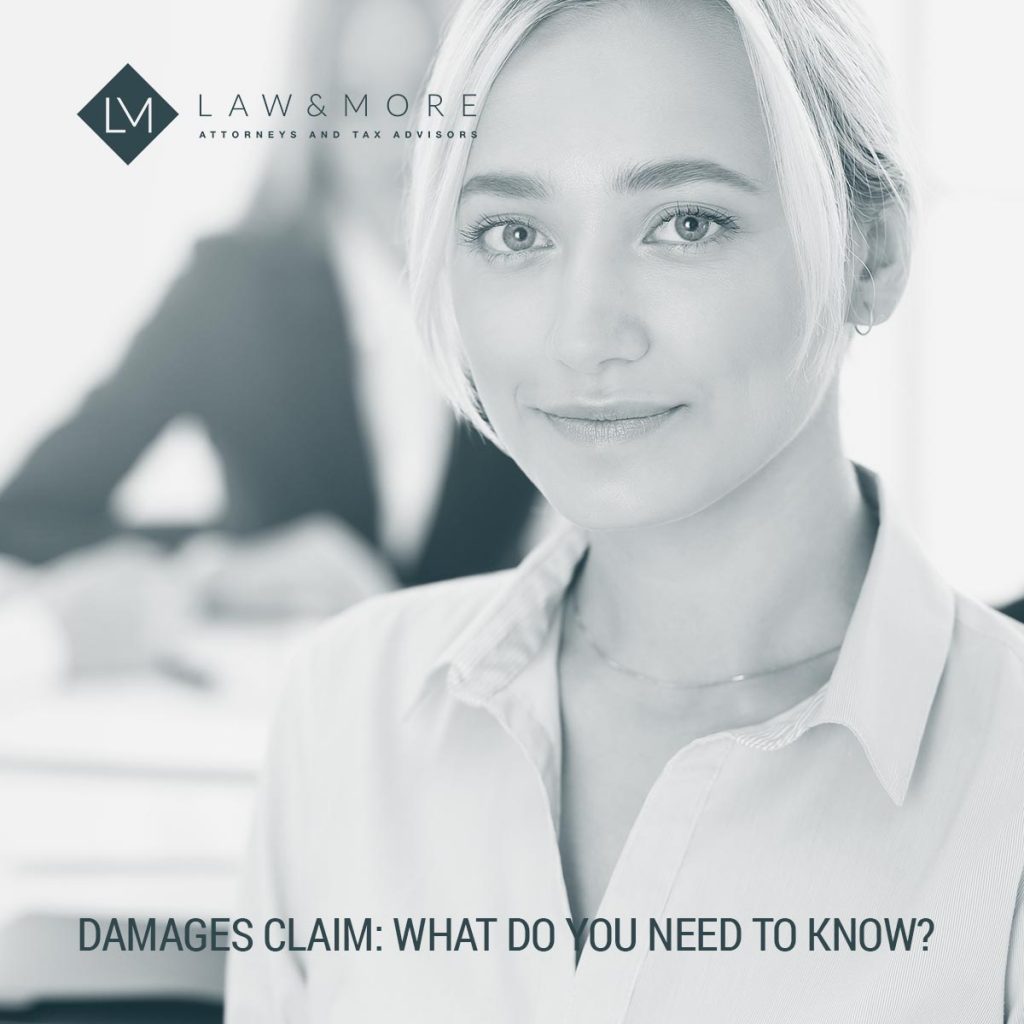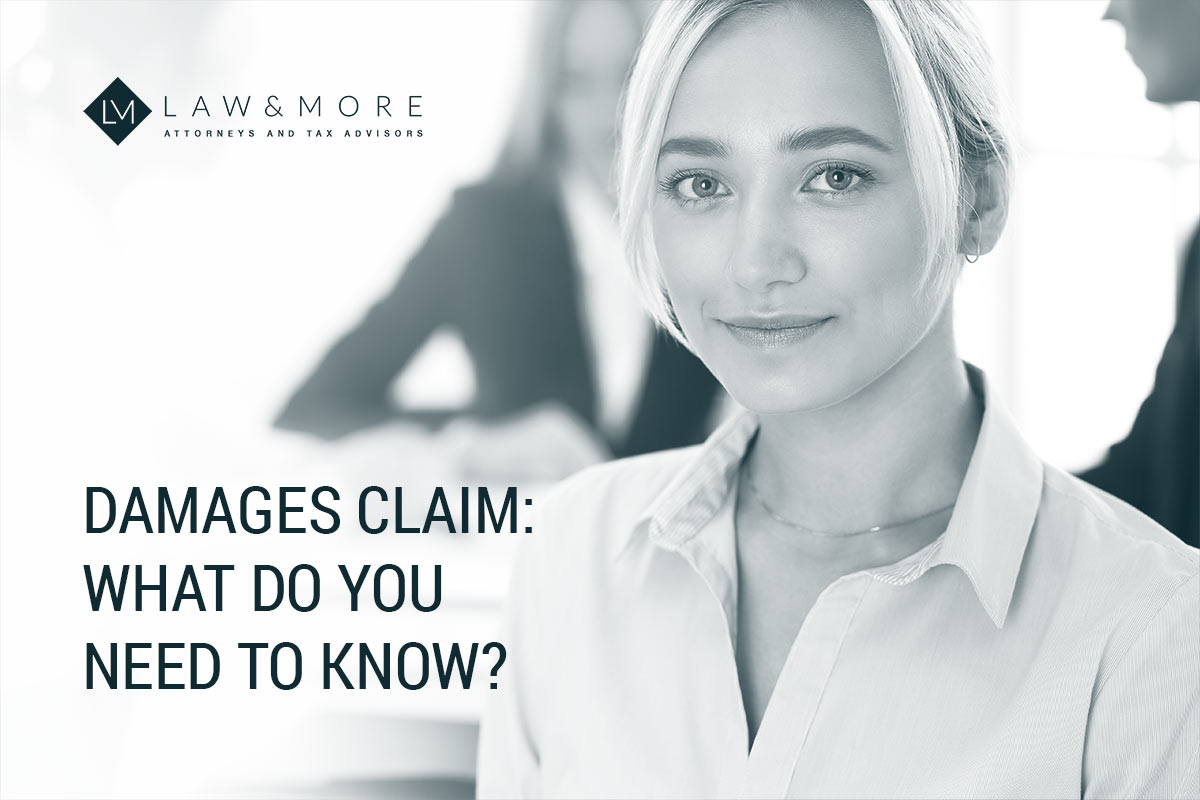The basic principle applies in Dutch compensation law: everyone bears his own damage. In some cases, simply no one is liable. Think, for example, of damage as a result of hailstorms. Was your damage caused by someone? In that case, it may only be possible to compensate the damage if there is a basis for holding the person liable. Two principles can be distinguished in Dutch law: contractual and legal liability.
Contractual liability
Do the parties enter into an agreement? Then it is not only the intention, but also an obligation that the agreements made therein must be fulfilled by both parties. If a party does not fulfil its obligations under the contract, there is a shortcoming. Consider, for example, the situation where the supplier does not deliver the goods, deliver them late or in poor condition.
However, only a shortcoming does not yet entitle you to compensation. This also requires accountability. Accountability is regulated in Article 6:75 of the Dutch Civil Code. This stipulates that a shortcoming cannot be attributed to the other party if it is not due to his fault, nor is it for the account of the law, legal act or prevailing views. This also applies in cases of force majeure.
Is there a shortcoming and is it also imputable? In that case, the resulting damage cannot yet be claimed directly from the other party. Usually, a notice of default must first be sent in order to give the other party the opportunity to fulfil its obligations as yet and within a reasonable period of time. If the other party still fails to fulfil its obligations, this will result in default and compensation can also be claimed.
In addition, the other party’s liability cannot be taken for granted, in view of the principle of freedom of contract. After all, parties in the Netherlands have great freedom of contract. This means that the contracting parties are also free to exclude a certain shortcoming accountability. This is usually done in the agreement itself or in the general terms and conditions declared applicable to it by means of an exoneration clause. Such a clause must, however, meet certain conditions before a party can invoke it in order to be held liable. When such a clause is present in the contractual relationship and meets the conditions, the starting point applies.
Legal liability
One of the most well-known and common forms of civil liability is the tort. This involves an act or omission by someone that unlawfully causes damage to another. Consider, for example, the situation that your visitor may accidentally knock over your precious vase or drop your expensive photo camera. In that case, Section 6:162 of the Dutch Civil Code stipulates that the victim of such acts or omissions is entitled to compensation if certain conditions are met.
For example, the conduct or act of someone else must first of all be regarded as unlawful. This is the case if the act involves an infringement of a certain right or an act or omission in violation of legal duty or social decency, or the unwritten standards. Furthermore, the act must be attributed to the ‘perpetrator’. This is possible if it is due to his fault or a cause that he is responsible for by law or in traffic. Intent is not required in the context of accountability. Very slight debt may be enough.
However, an attributable violation of a standard does not always lead to liability to anyone who suffers damage as a result. After all, liability can still be limited by the requirement of relativity. This requirement states that there is no obligation to pay compensation if the breached standard does not serve to protect against the damage suffered by the victim. It is therefore important that the ‘perpetrator’ acted wrongfully ‘towards’ the victim due to a violation of that standard.
Types of damage that qualify for compensation
If the requirements of contractual or civil liability are met, compensation can be claimed. The damage that is eligible for compensation in the Netherlands then includes financial loss and other loss. Where financial loss in accordance with Article 6:96 of the Dutch Civil Code concerns the loss or loss of profit suffered, other loss concerns according to article 6: 101 of the Dutch Civil Code intangible suffering. In principle, property damage is always and fully eligible for compensation, other disadvantage only insofar as the law provides in so many words.
Full compensation for damage actually suffered
If it comes to compensation, the basic principle of full compensation of the damage actually suffered applies.
This principle means that the injured party of a damage-causing event will not be reimbursed for more than his full damage. Article 6:100 of the Dutch Civil Code states that if the same event not only causes the victim damages, but also yields some benefits, this benefit must be charged when determining the damage to be compensated, insofar as this is reasonable. A benefit can be described as an improvement in the (asset) position of the victim as a result of the damage-causing event.
Moreover, the damage will not always be fully compensated. Culpable behaviour of the victim himself or circumstances in the area of risk of the victim play an important role in this. The question that must then be asked is the following: should the victim have acted differently than he did with regard to the occurrence or extent of the damage? In some cases, the victim may be obliged to limit the damage. This includes the situation of having a fire extinguisher present before the damage-causing event, such as a fire, took place. Is there any fault on the part of the victim? In that case, own culpable behaviour in principle leads to a reduction in the compensation obligation of the person causing the damage and the damage must be divided between the person causing the damage and the victim. In other words: a (large) part of the damage remains at the victim’s own expense. Unless the victim is insured for it.
Insure against damage
In view of the above, it may be wise to take out insurance to avoid being left with the damage as a victim or cause of damage. After all, damage and claiming it is a difficult doctrine. In addition, nowadays you can easily take out various insurance policies with insurance companies, such as liability insurance, household or car insurance.
Are you dealing with damage and do you want the insurance to compensate for your damage? Then you must report the damage to your insurer yourself, usually within a month. It is advisable to gather as much evidence for this. Which evidence you need depends on the type of damage and the agreements you have made with your insurer. After your report, the insurer will indicate whether and which damage will be compensated.
Please note that if the damage has been compensated by your insurance, you can no longer claim this damage from the person causing the damage. This is different with regard to damage that is not covered by your insurer. The premium increase as a result of claiming the damage from your insurer is also eligible for compensation by the person causing the damage.
Our services
At Law & More we understand that any damage can have far-reaching consequences for you. Are you dealing with damage and do you want to know whether or how you can claim this damage? Are you dealing with a claim for damages and would you like legal assistance in the procedure? Are you curious about what else we can do for you? Please contact Law & More. Our lawyers are experts in the field of damage claims and are happy to assist you through a personal and targeted approach and advice!

